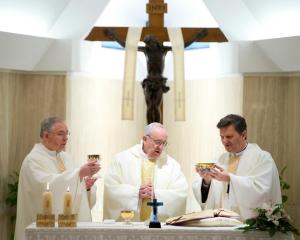
The day’s Reading from the Acts of the Apostles (5:34-42) concludes “the narrative of the persecution of the Apostles who preached in the name of Jesus”, which Francis had spoken of the day before. “They were thrown in prison, freed by the angel”, the Pope recalled; “then they were teaching in Solomon’s Porch” but “they were brought once again before the Sanhedrin”.
The issue, he explained, is that “the doctors of the law did not tolerate hearing the kerygma, the proclamation of Jesus Christ”. Verse 33 in particular, “says that that the doctors of the law, on hearing them, became enraged, and wanted to put them to death”. Their hatred and rage was so strong .“that they wanted to kill them”. But “in that moment, when perhaps they were ready to seize them and take them outside to be stoned, a Pharisee stood un in the Sanhedrin”.
This act was “important”, the Pope pointed out, because “not all the Pharisees were bad”. Indeed, we shouldn’t think of them “as if they were devils: no, there were bad ones and there were really good ones”. The passage from the Acts of the Apostles describes that Gamaliel, “a just man: he was in the Sanhedrin, a doctor of to the law, esteemed by all the people, in other words he had authority”. Thus, he was “a man of moral authority who gave the order to put the Apostles outside, by offering this reflection: ‘We have seen many revolutionaries who said they were the messiah, but how did they end up? Alone. Let’s let them alone”. If this is a matter of men, it will fall on its own. But if it is a matter of God, please, you might even be found opposing God!’. And so the others took his advice”.
It is “curious”, Francis remarked, that those “closed men who were certain of the law and who didn’t want to hear anyone speak otherwise, who didn’t know what dialogue was but preferred monologue”, in the end, “accepted this advice” to take some time. Indeed, time “is great medicine, because in time there is room for hope”. In fact, “St Peter Faber said that time is God’s messenger”.
Gamaliel’s suggestion also applies to Christians today, the Pope said: “When we have or we think something against a person, and we don’t seek advice, tension grows, and grows, and grows, and explodes: it explodes in insults, in war, in so many bad things”. Therefore, “when feelings are closed they grow, evil grows and it justifies itself because these things justify themselves with the law”. Thus, “the remedy, the medicine offered by Gamaliel is: ‘Stop, stop’”. His advice is “to give it some time”. This caution “is also useful to us when we have bad thoughts against others, bad feelings, when we have antipathy, hate: don’t let them grow, stop, give it some time”.
Indeed the Pope explained, time “places things in harmony and shows us what is right”. But “if you react in a moment of rage, you will surely be unjust”. And being “unjust will also cause harm to you”. This is why, the Pontiff re-emphasized, Gamaliel gives an excellent recommendation about “time at the moment of temptation”. This too is “the wise counsel of St Thérèse of the Child Jesus: flee from temptation, that is, give it time, step away, don’t let it grow inside and justify itself, and grow, and grow” until it explodes “in hatred, in hostility”. This even happens in families, the Pontiff recalled.
In the Sanhedrin that judged the Apostles, “this hatred is stopped by wise counsel and admonition: ‘You might even be found opposing God!’”. Gamaliel makes us understand that “when we have these bad feelings against others, we struggle against God, because God loves the others, loves harmony, loves love, loves dialogue, loves walking together”. And this is “sound advice”.
“I’ll be frank with you”, Francis confided: “it happens to me when I don’t like something. The first feeling isn’t of God, it’s bad, always. I have seen it in myself. Stop, let’s stop!”. This leaves “room for the Holy Spirit, so he may slowly heal us and lead us to what is just, to peace”.
Returning to the passage from the Acts, the Pope pointed out another meaningful fact. The members of the Sanhedrin took Gamaliel’s advice, “they called in the apostles, they beat them” before saying anything. However they had so much hate that they had to do something against them. Then they ordered the Apostles “not to speak in the name of Jesus”. Thus, “the stopped themselves but up to a certain point: the evil of these people was great”. Therefore only after beating them and ordering them not to speak in Jesus’ name did they “let them go free”. But “what did the Apostles do? Did they shout at them? Did they tell them: you are bad, you are going to hell? No”. The Acts, recalled the Bishop of Rome, tell us that the Apostles “left the presence of the council, rejoicing that they were counted worthy to suffer dishonour for the name” of Jesus: namely, “humiliation”.
And thus “the pride of the first ones leads to the desire to kill the others; humility, even humiliation, leads you to resemble Jesus: and this is something we do not consider”. Right away the Pope’s thoughts went to “so many of our brothers and sisters martyred for the name of Jesus”, even “at this moment”. And “they are in this state, in this moment they have gladness for suffering insults, even death, for the name of Jesus”.
After all, Francis affirmed, “to escape the pride of the first ones, the way is opening the heart to humility, and one never reaches humility without humiliation: this is not something that is understood naturally”. It is, rather, “a grace that we must ask for: Lord, when there is humiliation may I feel that I am following you, on your path, as you were humiliated”.
It is the grace of “imitating Jesus” which, the Pope added, concerns “not only those martyrs whom I spoke of now, but also the many men and women who suffer humiliation every day, and for the good of their own family, the good of other things, they shut their mouths, don’t speak, endure for the love of Jesus. And there are so many”. This “is the holiness of the Church: the gladness that humiliation gives, not because humiliation is beautiful, no: that would be masochism”: but “because with that humiliation you imitate Jesus”.
Thus, here are the “two attitudes” to compare. On the one hand is “that of closing the door that leads you to hatred, to anger, to wanting to kill the others”. On the other hand is “that of opening to God on Jesus’ path, which makes you endure humiliation”, even in harsh forms, “with this inner gladness, because you are certain of being on the path of Jesus”.
Before continuing with Mass, “the celebration of Jesus’ mystery, this mystery the death, the humiliation and the glory of Jesus”, the Pope called all to prayer, to ask for “the grace of patience: the patience Jesus had in listening to everyone” and in “being open to all, as well as suffering humiliations of love.

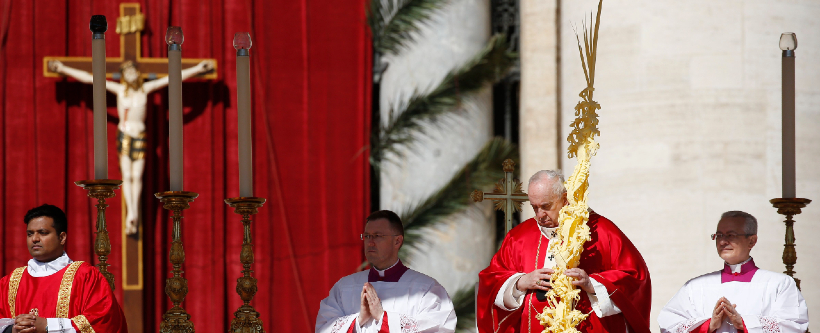
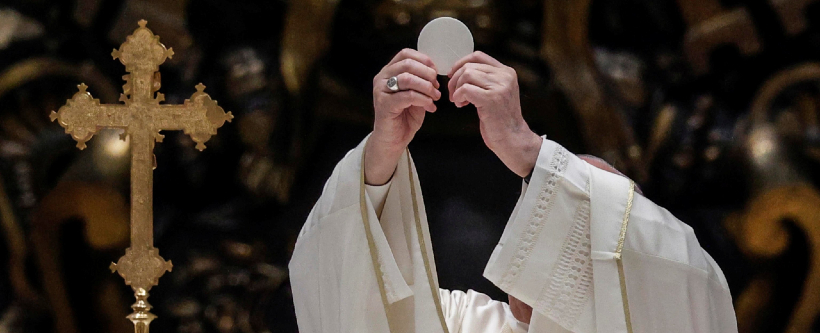
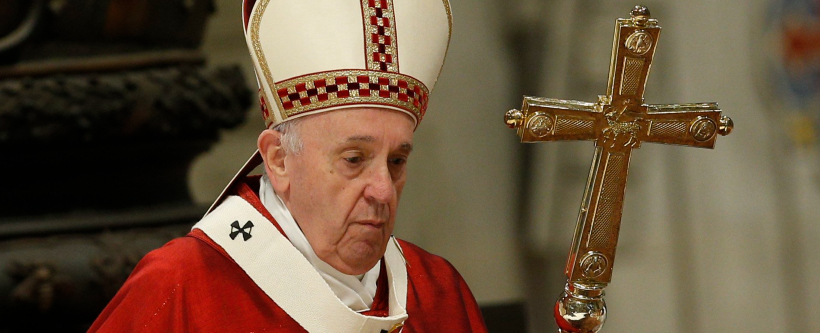
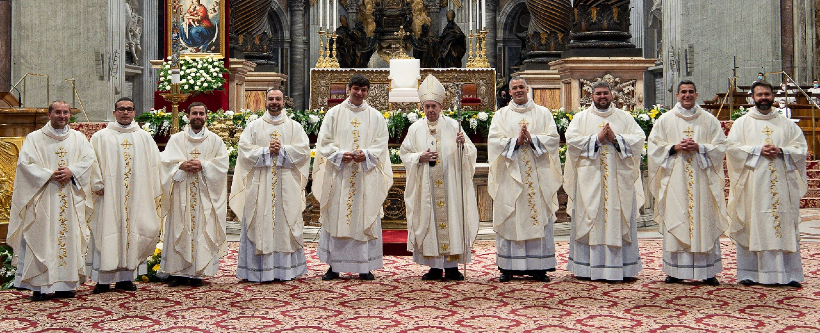
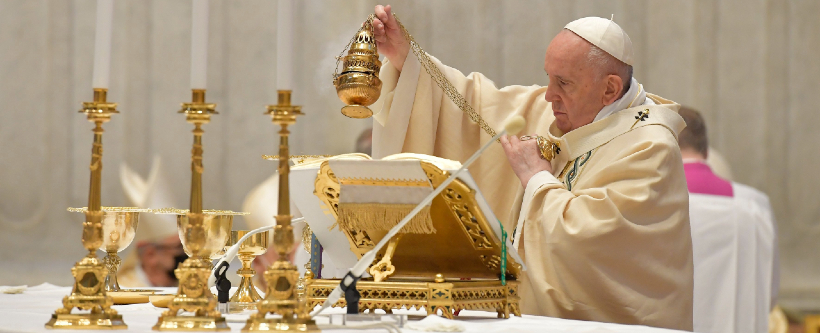
Facebook Comments